Events
| Name | organizer | Where |
|---|---|---|
| MBCC “Doing Business with Mongolia seminar and Christmas Receptiom” Dec 10. 2025 London UK | MBCCI | London UK Goodman LLC |
NEWS
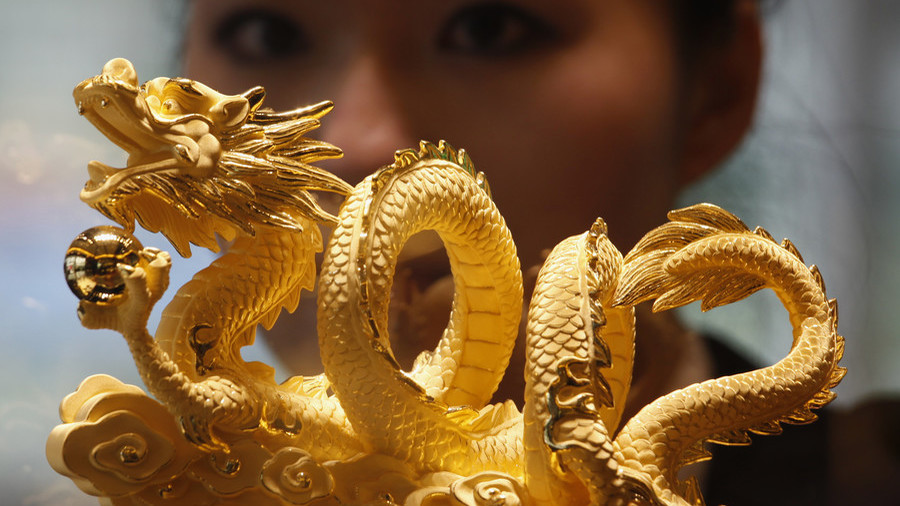
China's economy grows by a record 18.3% in the first quarter www.cnn.com
Hong Kong (CNN Business)China just posted its strongest quarterly growth on record as the world's second largest economy continued its robust recovery from the coronavirus pandemic.
GDP growth of 18.3% year-on-year in the first quarter was the strongest since China began keeping records in 1992, and was driven by a surge in retail sales, industrial production and investment in fixed assets.
The big jump reflects the deep slump in activity in early 2020 but it keeps China on track for growth of between 8% and 9% in 2021, economists said, far ahead of the Chinese government's official target of more than 6%.
"We are fully confident that we can maintain the current recovery momentum throughout the year," said Liu Aihua, a spokeswoman for the National Bureau of Statistics at a press conference in Beijing on Friday.
First quarter retail sales jumped 34% from a year ago, while fixed-asset investment in urban areas gained nearly 26%. Industrial production increased by more than 24%.
"Growth remains pretty strong at this stage as Covid losers such as consumption and [capital expenditures] are catching up," said Larry Hu, chief China economist for Macquarie Group, in a research report on Friday.
Retail sales, which took a big hit last year because of the lockdown, had improved because Beijing eased travel restrictions after the Lunar New Year holidays in February, he added. Investments in manufacturing and infrastructure also picked up pace.
Trade also provided a strong boost. Customs statistics released earlier this week showed imports jumped more than 38% last month in US dollar terms compared to a year earlier, a sign that demand within China is picking up. Exports grew by nearly 31%.
Hu said the strength in imports was broad based, indicating a "consumption recovery." And Beijing should easily hit its target of more than 6% growth for 2021. "Growth could easily go to 8-9% with the low base," Hu added.
Nomura analysts predicted Friday that China's GDP would grow 8.9% in 2021.
Last month, Premier Li Keqiang said the government had set this year's growth target at "above 6%." That's more than enough to accomplish President Xi Jinping's long-term goal for the economy, though still less aggressive than some observers have said they would like to see. Some analysts have said the cautious target indicates that the government is taking account of the risk that Covid-19 makes a comeback.
Earlier this month, the International Monetary Fund raised its growth estimate for China to 8.4% for this year, saying that "effective containment measures, a forceful public investment response and central bank liquidity support" had facilitated the country's recovery.
Recovery 'leveling off'
But some analysts say the outlook for the rest of this year is less certain.
Chaoping Zhu, global market strategist for JP Morgan Asset Management, said quarter-over-quarter growth is a better indicator of the current strength of the Chinese economy.
GDP grew by just 0.6% compared with the final quarter of 2020. That's the slowest pace since China began its recovery from the pandemic. In the first quarter of last year, the economy shrank a record 9.7% from the previous quarter, before bouncing back as the government eased restrictions. From the second to fourth quarters of 2020, the economy grew by 11.6%, 3%, and 2.6% respectively, quarter on quarter.
"It shows that the Chinese economy has already normalized," Zhu wrote in a note on Friday.
Julian Evans-Pritchard, senior China economist for Capital Economics, also pointed out that the 18.3% surge is largely distorted by low base effects.
"This tells us little about the economy's current momentum, however, since it reflects a much weaker base for comparison from last year's Covid-19 downturn," he said. "With the economy already above its pre-virus trend and policy support being withdrawn, China's post-Covid rebound is leveling off."

Iron ore price hits 10-year high on rising steel demand www.mining.com
Iron ore prices continued to climb on Friday despite concerns over environmental restrictions in China.
Tangshan, China’s top steelmaking city, said last month it will punish firms that either have not taken the steps spelled out under its emergency anti-pollution plan or have illegally discharged pollutants, following weeks of heavy smog in northern China.
SIGN UP FOR THE IRON ORE DIGEST
According to Fastmarkets MB, Benchmark 62% Fe fines imported into Northern China (CFR Qingdao) were changing hands for $178.43 a tonne on Friday – the highest level since 2011.
The high-grade Brazilian index (65% Fe fines) also advanced to a record high of $211.10 a tonne.
“Steel margins in China are very attractive at the moment, so even with the restrictions in Tangshan, other producers have every incentive to try to increase operating rates,” ING head of commodities strategy Warren Patterson told the Financial Review.
“Stronger margins, along with more focus on reducing emissions, has also proved supportive for higher-grade iron ore demand. This is reflected in the quality premium, which has widened recently,” Patterson said.
“Despite talk of nationwide inspections, we believe other regions will ramp up, particularly given the spike in steel margins,” JPMorgan analyst Lyndon Fagan said.
According to IndexBox, global steel consumption is forecast to increase in 2021 by 4.1% year-on-year.
Prices have also been fueled by falling supplies from major miners.
Goldman Sachs expects the market to enter a surplus in the second half of the year on higher Brazilian exports, bank analysts wrote in a note, adding they see prices falling back to $110 a tonne by the fourth quarter and below $100 in 2022.
(With files from Bloomberg and Reuters)
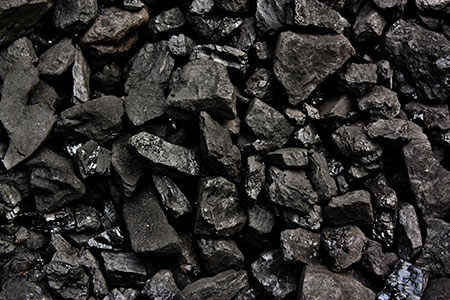
Mongolia’s coal exports soar by 114 percent on year www.news.mn
Over January-March, Mongolia’s total coal exports surged 113.7% on year to 6.7 million tonnes, among which 93.5% were to China, and the second largest destination was Singapore, which accounted for 5.8% of the total, according to Mongolia’s Customs data on April 12.
China has always been the top destination of Mongolian coal exports, while Singapore’s portion grewfrom the 3.7% for 2020 and the 0.9% for 2019 whole year, according to the data.
China accounted for 92.5 percent of Mongolia’s total exports and 39.1 percent of its total imports in the January-March period, said the office in a statement.
Meanwhile, Mongolia’s total trade with 121 foreign economies reached 3.5 billion U.S. dollars.
Mongolia is a landlocked country with rich natural resources, among which mineral fuels, ores and livestock are the main export commodities.
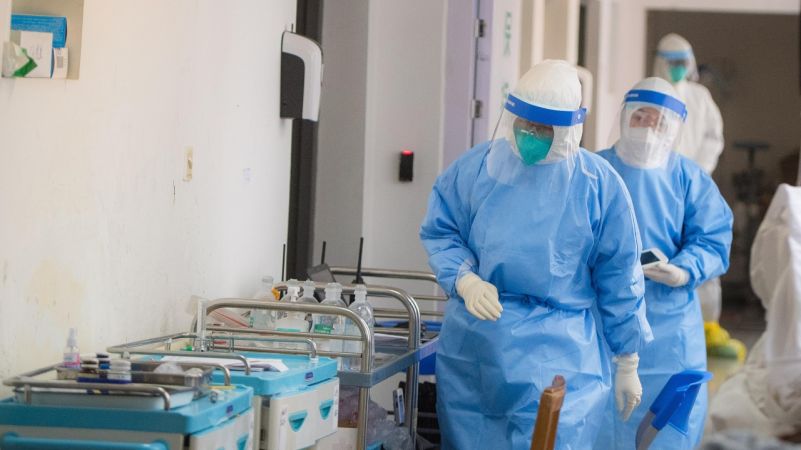
Mongolia sees new record high of daily COVID-19 cases www.xinhuanet.com
April 18 (Xinhua) -- Mongolia reported 1,340 COVID-19 cases in the last 24 hours, a new record high of daily cases, bringing the national tally to 21,995, the country's National Center for Communicable Diseases (NCCD) said Sunday.
A previous record of 1,220 cases was set on Wednesday.
One of the latest confirmed cases was imported from abroad, and the remaining ones were locally transmitted, the NCCD said in a statement.
Meanwhile, three more deaths and 427 more recoveries were reported, taking the nationwide counts to 50 and 11,877 respectively, it added.
Mongolia's COVID-19 surge continues, and around or more than 1,000 cases have been reported daily in the country in recent days, mostly in the capital Ulan Bator, which is home to over half of the country's population of 3.3 million.
A full nationwide lockdown, aimed at curbing the steep surge in local COVID-19 cases, took effect last Saturday and will last until April 25.
The Asian country reported its first imported COVID-19 case in March 2020 and confirmed its first locally transmitted cases in November. Enditem
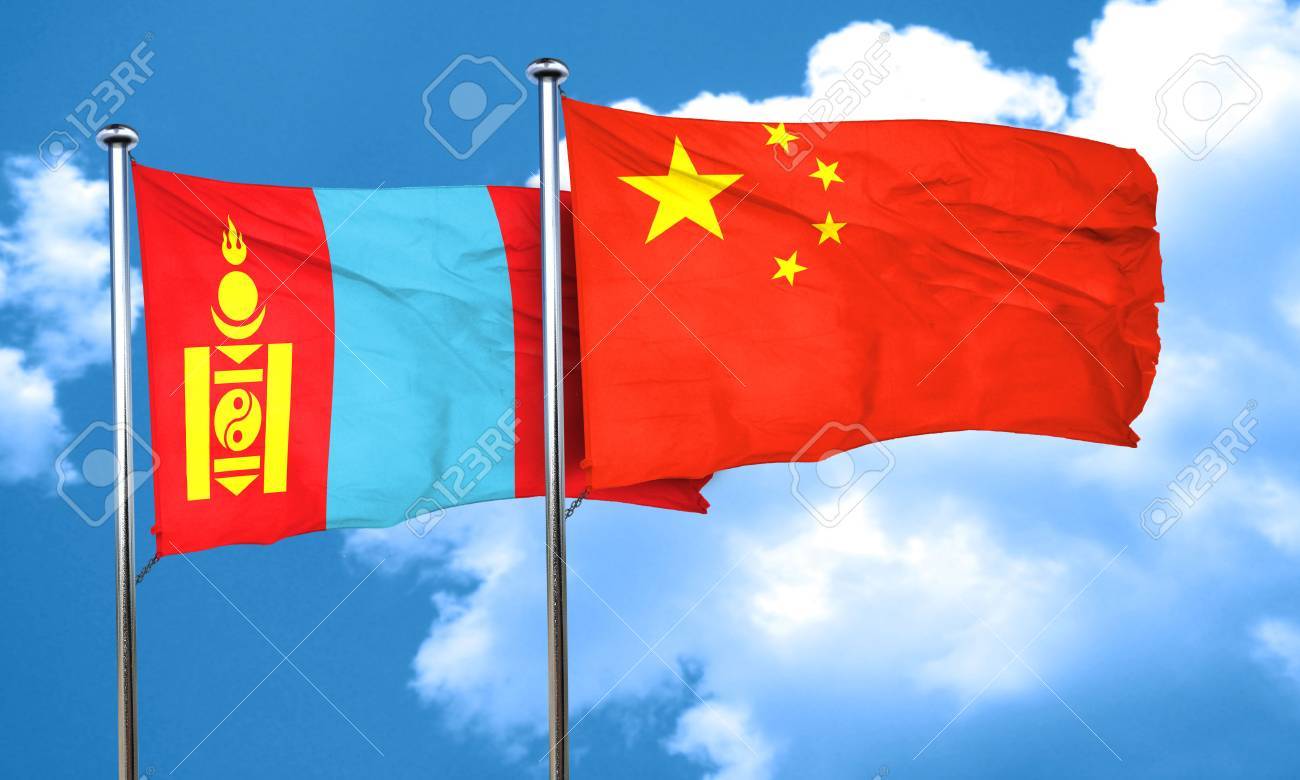
China donates fodder to Mongolian region hit by blizzards, sandstorms www.xinhuanet.com
Trucks loaded with fodder, donated by China as disaster relief to southern Mongolia's Omnogovi Province following blizzards and sandstorms, have left the Chinese border city of Bayannur, in north China's Inner Mongolia Autonomous region.
According to the city authority, all 150 tonnes of donated fodder has passed through the border port between Bayannur and the neighboring Mongolian province across the border.
He Lei, director of the municipal foreign affairs office, said that the Mongolian province has suffered from several rounds of blizzards and sandstorms since the winter, resulting in a severe shortage of forage for livestock in the area. It requested assistance in the form of forage from the city of Bayannur.
This year marks the 15th anniversary of the establishment of sister relations between Bayannur and Omnogovi Province. The donation of disaster relief carried China's good wishes, supporting Mongolia in fighting the COVID-19 epidemic and coping with disasters, said He. Enditem

U.S. Senate adopts Resolution Reaffirming Mongolia-U.S. Strategic Partnership www.montsame.mn
The Resolution Reaffirming the strategic partnership between the United States and Mongolia and recognizing the 30th anniversary of democracy in Mongolia was agreed to at the 117th Congress of the Senate of the United States of America, convened April 15th, 2021.
Following the official talks between President of Mongolia Khaltmaagiin Battulga and then-President of the United States of America Donald Trump, during President Battulga’s visit to the U.S. in July 2019, a Declaration on the Strategic Partnership between the United States of America and Mongolia was released.
The U.S. Senate adopted the Resolution Reaffirming the strategic partnership between the United States and Mongolia and recognizing the 30th anniversary of democracy in Mongolia, in recognition of the continued validity of the above-mentioned joint declaration.
Together with the Draft Resolution agreed to by the House of Representatives of the U.S. Congress in December 2020, the Resolution Reaffirming the strategic partnership between the United States and Mongolia and recognizing the 30th anniversary of democracy in Mongolia will be an important impetus to the backing of Mongolia Third Neighbor Trade Act by the U.S. Congress.
Source: president.mn
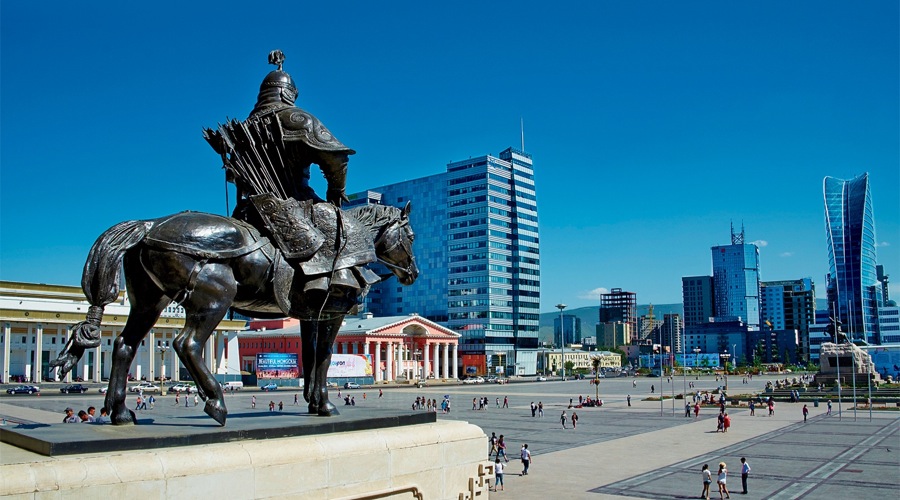
Series of consultation meetings held on ‘100 projects and activities to be implemented in the leading sectors’ www.montsame.mn
Within the framework of the “100 PROJECTS AND ACTIVITIES TO BE IMPLEMENTED IN THE LEADING SECTORS”, a series of consultation meetings with representatives of international organizations, private sector and professional associations were organized.
Within the first 100 days of the Government, the National Development Agency (NDA) along with the Cabinet Secretariat and the Ministry of Finance have been tasked with compiling a comprehensive list of “100 PROJECTS AND ACTIVITIES TO BE IMPLEMENTED IN THE LEADING SECTORS” and ensuring coordination between the government and the private sector.
Projects that have an impact on national and long-term development are included in the list according to an international evidence-based approach, taking into account not only economic benefits, but also social, environmental impact, and accessibility to the population which have become requirements for international funding.
The list of 100 projects, which was jointly developed by the Ministry of Finance and the National Development Agency in three stages and three scenarios, aims to see the development picture of our country in the long run and to accelerate its implementation. Within the framework of this list, 2 consultative meetings were held online with representatives of international financing organizations, private sector and professional associations on April 13 and 15, 2021, respectively. On Monday, the consultative meeting with the city and local authorities will be held online. As a result, the integrated proposals of 3 consultative meetings will be finalized.
The National Development Agency will continue to explore the possibility of introducing innovative internationally accepted financial mechanisms without increasing the budget burden and raising the debt ceiling.
The meeting, held on April 13, 2021, was attended by more than 40 representatives from more than 10 international organizations, including the United Nations, the International Monetary Fund, the Asian Development Bank, and the World Bank. The meeting was opened by S.Oyun, Director of External Relations of the Green Climate Fund, which is the largest fund for climate change in the world, about the high cost and scarcity of financing raw coal-based projects, which are the backbone of our economy. Also, she touched upon the importance of implementing environmentally friendly and green criteria to ensure project readiness, while other international organizations have raised the issue with her in unison.
Representatives of the international organizations expressed their support for the 100 projects list, and stated that they will support the NDA’s work on selecting few relevant projects and include them in the Pitch book to be published by the NDA, and conducting risk assessment and preparation for international funding for each selected project.
The next meeting, held on April 15 with representatives of the private sector and professional associations, was attended by more than 80 guests, including representatives of Mongolia's largest business group companies, emerging start-ups, business associations and professional associations.
The consultative meeting lasted more than two hours, and participants emphasized that it was an innovation for public organizations to openly share their development policies and discuss policy support opportunities and cooperation with the private sector.
D.Enkhtuvshin, Vice President of MCS Group, and U.Ganzorig, President of Mandal Financial Group, emphasized the need to focus on innovative financial opportunities for project implementation, explore opportunities for public-private partnerships, and prioritize policy succession and sustainability. Director of Gerege company, N. Enkhjargal said that the private sector should not compete with the public. G.Javkhlantugs, Policy Director of AmCham Trade Department, stated about the possibility of continuing projects without politicization. E.Orchlon, Investment Director of NewCom Group, introduced their major projects, the possibility of collaboration and other participants and business representatives emphasized their opinions about the 100 projects.
The series of meetings was moderated by B.Bulganchimeg, Deputy Chairperson in charge of Foreign Direct Investment and Foreign Cooperation, who presented the comprehensive reforms initiated by the NDA on the legal environment for investment, investor protection, promotion and e-services, which are essential for project implementation. Kh.Batjargal, Chairman of the National Development Agency, explained the importance of 100 projects, future plans and implementation coordination. He also stated the importance of Mongolia preparing more environmentally friendly green projects and putting them into economic circulation. B.Dulguun, Deputy Chairperson in charge of Research, Development Policy and Planning, answered questions about the listing methodology of 100 projects and their impact on the macro economy. The 100 projects will be announced to the public within 100 days of the government.
For more information, please contact batchimeg.e@nda.gov.mn.
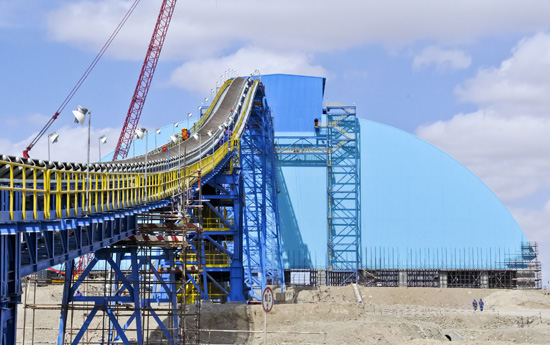
Talks with Rio Tinto on Oyu Tolgoi Project launches www.montsame.mn
The working group in charge of implementing the parliamentary resolution No.92 dated November 21, 2019, titled ‘Ensuring the interests of Mongolia in the exploitation of the Oyu Tolgoi gold-copper mine’ began the negotiations with Rio Tinto company delegates on April 12.
The government's working group, set up by the decree of the Prime Minister of Mongolia, has expressed its position to the investor side to terminate the Oyu Tolgoi Underground Mine Development and Financing Plan, also known as the ‘Dubai Agreement‘, and ensure the interest of Mongolia. This is because when the plan was first established, the initial cost estimates of the Oyu Tolgoi underground development plan were approved at USD 5.3 billion. Unfortunately, this cost estimate was increased by USD 1.4 billion or about 30 percent, reaching USD 6.75 billion, and the date when the first underground production to be achieved was extended by 22 months from the first estimation of January 2021. Moreover, it was calculated that Mongolia will not receive dividend payments until 2051 and will incur debts of USD 22 billion, which is prompting to reconsider the plan.
B.Solongoo, Deputy Chief of Cabinet Secretariat and a member of the working group, said during her interview with Mongolian National Broadcaster, “We will take all necessary measures to make the Oyu Tolgoi project as profitable as possible for the Mongolian side. I do not assume that the negotiations on this issue will end soon as the parliamentary resolution No. 92 commands very broad areas. In this regard, we have to work for the improvement of the entire framework agreement, such as the Investment Agreement of 2009, the Shareholders‘ Agreement of 2011, and to make the Oyu Tolgoi project more profitable for Mongolia as a whole."
She also said that independent experts are expected to make a conclusion on the issue of cost overrun in the underground development of Oyu Tolgoi by late June. Tax acts of MNT 377 billion and MNT 649.4 billion were imposed on Oyu Tolgoi LLC in 2018 and 2020 respectively. However, the company declined to accept the tax penalty of MNT 377 billion and initiated an arbitration proceeding at the London Court of International Arbitration.
"The government will defend its stance that the company must pay an appropriate amount of tax if it earns its income from Mongolia," stressed B. Solongoo.
80 percent of the total resources of the Oyu Tolgoi project will be mined underground. Currently, Oyu Tolgoi has an annual revenue of USD 1 billion from open-pit mining. With the opening of the underground mine, this revenue is expected to quadruple.
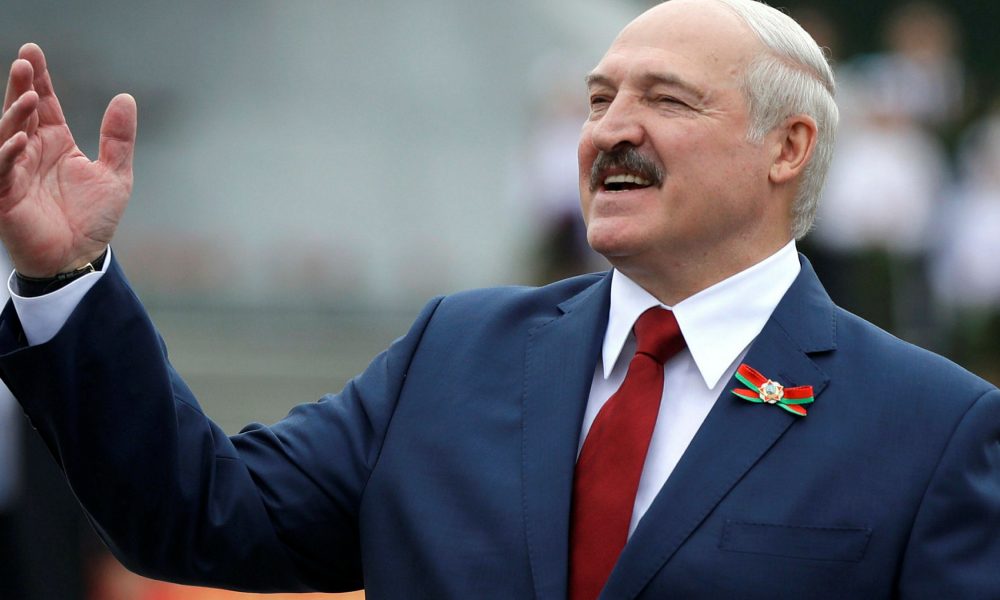
The Mongolian connection to Lukashenko’s money www.eureporter.co
On 6 November 2020, the EU, Switzerland and US froze the assets and accounts of 59 people around the world, including Belarus’s autocratic president, Alexander Lukashenko, his son and associates. Subsequently, it was revealed that Lukashenko's money-laundering network was sending large sums of money through Mongolia to offshore companies in Estonia and Dominican Republic.
Lukashenko had a few hard-currency cash cows. One was Belaz, a manufacturer of heavy-duty trucks and equipment used in mining. The Belarus state-owned Belaz sells trucks and other products through United Belaz Machinery, its official dealer in Mongolia.
The shareholders of United Belaz Machinery used to be Otgonjargal Moyle, a Mongolian citizen, and Vladimir Gennadievich Yaprintsev, from Belarus. Yaprintsev, is a three-time world champion in sambo. He’s made public his friendship with Khaltmaa Battulga, the Mongolia president. They met through their mutual love of sambo in the mid-1980s and established a joint venture in Mongolia.
Otgonjargal Moyle is a former personal assistant to Battulga. She was a shareholder in two of his companies, Tumen Khishigten and Bayalgyn Khuvi. Otgonjargal is now a high-ranking law enforcement official in the Mongolia Prosecutor General's Office.
United Belaz Machinery has a Mongolia sister company, United Belaz Machinery Investment Company. It’s suspected of laundering sums of money for Lukashenko under the guise of selling mining equipment in Mongolia.
Ownership of United Belaz Machinery was transferred by the pair to Meress, a company registered in Estonia and Blustait, in Dominican Republic.
The beneficial owners of these offshore companies are thought to be connected to Lukashenko.
United Belaz’s affairs are tightly-guarded. It is alleged that its lucrative dealerships are only awarded to those associated with the very highest levels of the Lukashenko regime and the country in which it sells the equipment, in this case, Mongolia.
The roles of the Estonia and Dominican Republic companies and what funds reach them requires further investigation, not only in Mongolia, but by international law enforcement agencies.
ProPublica has published a scathing report, “The country that exiled McKinsey”, detailing alleged corruption surrounding a Mongolia railway-building scheme and the creation of a bogus feasibility study. Battulga, then minister of road, transportation and urban development, and his advisor, Chuluunkhuu Ganbat, were heavily implicated. Otgonjargal Moyle, the original shareholder in the Belaz dealership, was also drawn in as an associate of Battulga.
After Battulga’s election as president, and the subsequent departure of the prosecutor general and head of the anti-corruption agency who were investigating the case, the probe and prospect of any prosecutions ended.
It was alleged during the railway inquiry that millions of US dollars in cash were being deposited by Otgonjargal Moyle in accounts of companies and foundations linked to Battulga. What was not clear is how a person with rather modest means and not a large publicly declared income had access to large sums of cash. Was it connected to Belaz? Again, we won’t know until this is properly looked into by Mongolian and international law agencies.
Otgonjargal Moyle is the wife of Ben Moyle, founder and former director of C1 TV, which is controlled by Battulga, and frequently unleashes attacks on his local political opponents. Ben Moyle is a UK citizen.
It’s to be hoped that Otgonjargal did not acquire UK citizenship, as under Mongolian law, dual citizenship is prohibited. In Mongolia, working as a government employee, especially in law enforcement, is considered to be a “special service branch of the civil service” and has a higher bar of compliance, as a foreign citizen is a grave offence.
United Belaz Machinery supplied the the state-owned Baganuur mine with four coal trucks, four dump trucks and a bulldozer. It received MNT 18.6 billion from the Development Bank of Mongolia to implement a project to expand the coal-crushing and loading facility, which was never paid back.
A total of 35 pieces of Belaz equipment, worth MNT 27 billion, was supplied to Erdenet, another state-owned copper mine. Documents were allegedly falsified and Belaz is suspected of having been in collusion with the plant's management.
Was Battulga's pressure and influence behind these deals, which also involved higher-than-market prices? If so, he has awkward questions to answer. Misusing power and favouring a specific supplier are criminal offences under Mongolian law.
The evidence heavily suggests the existence of a global network of assets and businesses tied to money laundering via Mongolia for Lukashenko.
The inter-governmental Financial Action Task Force has previously targeted Mongolia for money laundering and included the country on its “Grey List” of nations with deficiencies in their systems that must be more closely monitored. What is required now is a thorough investigation, not only into possible money laundering by Mongolia’s president and a high-level law enforcement official but also on behalf of a vilified European ruler.

Mongolia to prepare 9,700 tons of cashmere in 2021: agriculture ministry www.xinhuanet.com
Mongolia is expected to prepare around 9,700 tons of cashmere this year, the country's food and agriculture ministry said Thursday.
Mongolia, one of the last nomadic countries in the world, exports 60 percent to 70 percent of its total cashmere prepared per year after primary processing and washing, the ministry said in a statement.
The country's livestock number totaled 67.1 million by the end of 2020, and over 41 percent of them were goats, according to the National Statistics Office.
The Asian country, with a population of 3.3 million, has more than 230,000 herder households. Cashmere is one of the main sources of income for Mongolian herders. Enditem
- «
- 1
- 2
- 3
- 4
- 5
- 6
- 7
- 8
- 9
- 10
- 11
- 12
- 13
- 14
- 15
- 16
- 17
- 18
- 19
- 20
- 21
- 22
- 23
- 24
- 25
- 26
- 27
- 28
- 29
- 30
- 31
- 32
- 33
- 34
- 35
- 36
- 37
- 38
- 39
- 40
- 41
- 42
- 43
- 44
- 45
- 46
- 47
- 48
- 49
- 50
- 51
- 52
- 53
- 54
- 55
- 56
- 57
- 58
- 59
- 60
- 61
- 62
- 63
- 64
- 65
- 66
- 67
- 68
- 69
- 70
- 71
- 72
- 73
- 74
- 75
- 76
- 77
- 78
- 79
- 80
- 81
- 82
- 83
- 84
- 85
- 86
- 87
- 88
- 89
- 90
- 91
- 92
- 93
- 94
- 95
- 96
- 97
- 98
- 99
- 100
- 101
- 102
- 103
- 104
- 105
- 106
- 107
- 108
- 109
- 110
- 111
- 112
- 113
- 114
- 115
- 116
- 117
- 118
- 119
- 120
- 121
- 122
- 123
- 124
- 125
- 126
- 127
- 128
- 129
- 130
- 131
- 132
- 133
- 134
- 135
- 136
- 137
- 138
- 139
- 140
- 141
- 142
- 143
- 144
- 145
- 146
- 147
- 148
- 149
- 150
- 151
- 152
- 153
- 154
- 155
- 156
- 157
- 158
- 159
- 160
- 161
- 162
- 163
- 164
- 165
- 166
- 167
- 168
- 169
- 170
- 171
- 172
- 173
- 174
- 175
- 176
- 177
- 178
- 179
- 180
- 181
- 182
- 183
- 184
- 185
- 186
- 187
- 188
- 189
- 190
- 191
- 192
- 193
- 194
- 195
- 196
- 197
- 198
- 199
- 200
- 201
- 202
- 203
- 204
- 205
- 206
- 207
- 208
- 209
- 210
- 211
- 212
- 213
- 214
- 215
- 216
- 217
- 218
- 219
- 220
- 221
- 222
- 223
- 224
- 225
- 226
- 227
- 228
- 229
- 230
- 231
- 232
- 233
- 234
- 235
- 236
- 237
- 238
- 239
- 240
- 241
- 242
- 243
- 244
- 245
- 246
- 247
- 248
- 249
- 250
- 251
- 252
- 253
- 254
- 255
- 256
- 257
- 258
- 259
- 260
- 261
- 262
- 263
- 264
- 265
- 266
- 267
- 268
- 269
- 270
- 271
- 272
- 273
- 274
- 275
- 276
- 277
- 278
- 279
- 280
- 281
- 282
- 283
- 284
- 285
- 286
- 287
- 288
- 289
- 290
- 291
- 292
- 293
- 294
- 295
- 296
- 297
- 298
- 299
- 300
- 301
- 302
- 303
- 304
- 305
- 306
- 307
- 308
- 309
- 310
- 311
- 312
- 313
- 314
- 315
- 316
- 317
- 318
- 319
- 320
- 321
- 322
- 323
- 324
- 325
- 326
- 327
- 328
- 329
- 330
- 331
- 332
- 333
- 334
- 335
- 336
- 337
- 338
- 339
- 340
- 341
- 342
- 343
- 344
- 345
- 346
- 347
- 348
- 349
- 350
- 351
- 352
- 353
- 354
- 355
- 356
- 357
- 358
- 359
- 360
- 361
- 362
- 363
- 364
- 365
- 366
- 367
- 368
- 369
- 370
- 371
- 372
- 373
- 374
- 375
- 376
- 377
- 378
- 379
- 380
- 381
- 382
- 383
- 384
- 385
- 386
- 387
- 388
- 389
- 390
- 391
- 392
- 393
- 394
- 395
- 396
- 397
- 398
- 399
- 400
- 401
- 402
- 403
- 404
- 405
- 406
- 407
- 408
- 409
- 410
- 411
- 412
- 413
- 414
- 415
- 416
- 417
- 418
- 419
- 420
- 421
- 422
- 423
- 424
- 425
- 426
- 427
- 428
- 429
- 430
- 431
- 432
- 433
- 434
- 435
- 436
- 437
- 438
- 439
- 440
- 441
- 442
- 443
- 444
- 445
- 446
- 447
- 448
- 449
- 450
- 451
- 452
- 453
- 454
- 455
- 456
- 457
- 458
- 459
- 460
- 461
- 462
- 463
- 464
- 465
- 466
- 467
- 468
- 469
- 470
- 471
- 472
- 473
- 474
- 475
- 476
- 477
- 478
- 479
- 480
- 481
- 482
- 483
- 484
- 485
- 486
- 487
- 488
- 489
- 490
- 491
- 492
- 493
- 494
- 495
- 496
- 497
- 498
- 499
- 500
- 501
- 502
- 503
- 504
- 505
- 506
- 507
- 508
- 509
- 510
- 511
- 512
- 513
- 514
- 515
- 516
- 517
- 518
- 519
- 520
- 521
- 522
- 523
- 524
- 525
- 526
- 527
- 528
- 529
- 530
- 531
- 532
- 533
- 534
- 535
- 536
- 537
- 538
- 539
- 540
- 541
- 542
- 543
- 544
- 545
- 546
- 547
- 548
- 549
- 550
- 551
- 552
- 553
- 554
- 555
- 556
- 557
- 558
- 559
- 560
- 561
- 562
- 563
- 564
- 565
- 566
- 567
- 568
- 569
- 570
- 571
- 572
- 573
- 574
- 575
- 576
- 577
- 578
- 579
- 580
- 581
- 582
- 583
- 584
- 585
- 586
- 587
- 588
- 589
- 590
- 591
- 592
- 593
- 594
- 595
- 596
- 597
- 598
- 599
- 600
- 601
- 602
- 603
- 604
- 605
- 606
- 607
- 608
- 609
- 610
- 611
- 612
- 613
- 614
- 615
- 616
- 617
- 618
- 619
- 620
- 621
- 622
- 623
- 624
- 625
- 626
- 627
- 628
- 629
- 630
- 631
- 632
- 633
- 634
- 635
- 636
- 637
- 638
- 639
- 640
- 641
- 642
- 643
- 644
- 645
- 646
- 647
- 648
- 649
- 650
- 651
- 652
- 653
- 654
- 655
- 656
- 657
- 658
- 659
- 660
- 661
- 662
- 663
- 664
- 665
- 666
- 667
- 668
- 669
- 670
- 671
- 672
- 673
- 674
- 675
- 676
- 677
- 678
- 679
- 680
- 681
- 682
- 683
- 684
- 685
- 686
- 687
- 688
- 689
- 690
- 691
- 692
- 693
- 694
- 695
- 696
- 697
- 698
- 699
- 700
- 701
- 702
- 703
- 704
- 705
- 706
- 707
- 708
- 709
- 710
- 711
- 712
- 713
- 714
- 715
- 716
- 717
- 718
- 719
- 720
- 721
- 722
- 723
- 724
- 725
- 726
- 727
- 728
- 729
- 730
- 731
- 732
- 733
- 734
- 735
- 736
- 737
- 738
- 739
- 740
- 741
- 742
- 743
- 744
- 745
- 746
- 747
- 748
- 749
- 750
- 751
- 752
- 753
- 754
- 755
- 756
- 757
- 758
- 759
- 760
- 761
- 762
- 763
- 764
- 765
- 766
- 767
- 768
- 769
- 770
- 771
- 772
- 773
- 774
- 775
- 776
- 777
- 778
- 779
- 780
- 781
- 782
- 783
- 784
- 785
- 786
- 787
- 788
- 789
- 790
- 791
- 792
- 793
- 794
- 795
- 796
- 797
- 798
- 799
- 800
- 801
- 802
- 803
- 804
- 805
- 806
- 807
- 808
- 809
- 810
- 811
- 812
- 813
- 814
- 815
- 816
- 817
- 818
- 819
- 820
- 821
- 822
- 823
- 824
- 825
- 826
- 827
- 828
- 829
- 830
- 831
- 832
- 833
- 834
- 835
- 836
- 837
- 838
- 839
- 840
- 841
- 842
- 843
- 844
- 845
- 846
- 847
- 848
- 849
- 850
- 851
- 852
- 853
- 854
- 855
- 856
- 857
- 858
- 859
- 860
- 861
- 862
- 863
- 864
- 865
- 866
- 867
- 868
- 869
- 870
- 871
- 872
- 873
- 874
- 875
- 876
- 877
- 878
- 879
- 880
- 881
- 882
- 883
- 884
- 885
- 886
- 887
- 888
- 889
- 890
- 891
- 892
- 893
- 894
- 895
- 896
- 897
- 898
- 899
- 900
- 901
- 902
- 903
- 904
- 905
- 906
- 907
- 908
- 909
- 910
- 911
- 912
- 913
- 914
- 915
- 916
- 917
- 918
- 919
- 920
- 921
- 922
- 923
- 924
- 925
- 926
- 927
- 928
- 929
- 930
- 931
- 932
- 933
- 934
- 935
- 936
- 937
- 938
- 939
- 940
- 941
- 942
- 943
- 944
- 945
- 946
- 947
- 948
- 949
- 950
- 951
- 952
- 953
- 954
- 955
- 956
- 957
- 958
- 959
- 960
- 961
- 962
- 963
- 964
- 965
- 966
- 967
- 968
- 969
- 970
- 971
- 972
- 973
- 974
- 975
- 976
- 977
- 978
- 979
- 980
- 981
- 982
- 983
- 984
- 985
- 986
- 987
- 988
- 989
- 990
- 991
- 992
- 993
- 994
- 995
- 996
- 997
- 998
- 999
- 1000
- 1001
- 1002
- 1003
- 1004
- 1005
- 1006
- 1007
- 1008
- 1009
- 1010
- 1011
- 1012
- 1013
- 1014
- 1015
- 1016
- 1017
- 1018
- 1019
- 1020
- 1021
- 1022
- 1023
- 1024
- 1025
- 1026
- 1027
- 1028
- 1029
- 1030
- 1031
- 1032
- 1033
- 1034
- 1035
- 1036
- 1037
- 1038
- 1039
- 1040
- 1041
- 1042
- 1043
- 1044
- 1045
- 1046
- 1047
- 1048
- 1049
- 1050
- 1051
- 1052
- 1053
- 1054
- 1055
- 1056
- 1057
- 1058
- 1059
- 1060
- 1061
- 1062
- 1063
- 1064
- 1065
- 1066
- 1067
- 1068
- 1069
- 1070
- 1071
- 1072
- 1073
- 1074
- 1075
- 1076
- 1077
- 1078
- 1079
- 1080
- 1081
- 1082
- 1083
- 1084
- 1085
- 1086
- 1087
- 1088
- 1089
- 1090
- 1091
- 1092
- 1093
- 1094
- 1095
- 1096
- 1097
- 1098
- 1099
- 1100
- 1101
- 1102
- 1103
- 1104
- 1105
- 1106
- 1107
- 1108
- 1109
- 1110
- 1111
- 1112
- 1113
- 1114
- 1115
- 1116
- 1117
- 1118
- 1119
- 1120
- 1121
- 1122
- 1123
- 1124
- 1125
- 1126
- 1127
- 1128
- 1129
- 1130
- 1131
- 1132
- 1133
- 1134
- 1135
- 1136
- 1137
- 1138
- 1139
- 1140
- 1141
- 1142
- 1143
- 1144
- 1145
- 1146
- 1147
- 1148
- 1149
- 1150
- 1151
- 1152
- 1153
- 1154
- 1155
- 1156
- 1157
- 1158
- 1159
- 1160
- 1161
- 1162
- 1163
- 1164
- 1165
- 1166
- 1167
- 1168
- 1169
- 1170
- 1171
- 1172
- 1173
- 1174
- 1175
- 1176
- 1177
- 1178
- 1179
- 1180
- 1181
- 1182
- 1183
- 1184
- 1185
- 1186
- 1187
- 1188
- 1189
- 1190
- 1191
- 1192
- 1193
- 1194
- 1195
- 1196
- 1197
- 1198
- 1199
- 1200
- 1201
- 1202
- 1203
- 1204
- 1205
- 1206
- 1207
- 1208
- 1209
- 1210
- 1211
- 1212
- 1213
- 1214
- 1215
- 1216
- 1217
- 1218
- 1219
- 1220
- 1221
- 1222
- 1223
- 1224
- 1225
- 1226
- 1227
- 1228
- 1229
- 1230
- 1231
- 1232
- 1233
- 1234
- 1235
- 1236
- 1237
- 1238
- 1239
- 1240
- 1241
- 1242
- 1243
- 1244
- 1245
- 1246
- 1247
- 1248
- 1249
- 1250
- 1251
- 1252
- 1253
- 1254
- 1255
- 1256
- 1257
- 1258
- 1259
- 1260
- 1261
- 1262
- 1263
- 1264
- 1265
- 1266
- 1267
- 1268
- 1269
- 1270
- 1271
- 1272
- 1273
- 1274
- 1275
- 1276
- 1277
- 1278
- 1279
- 1280
- 1281
- 1282
- 1283
- 1284
- 1285
- 1286
- 1287
- 1288
- 1289
- 1290
- 1291
- 1292
- 1293
- 1294
- 1295
- 1296
- 1297
- 1298
- 1299
- 1300
- 1301
- 1302
- 1303
- 1304
- 1305
- 1306
- 1307
- 1308
- 1309
- 1310
- 1311
- 1312
- 1313
- 1314
- 1315
- 1316
- 1317
- 1318
- 1319
- 1320
- 1321
- 1322
- 1323
- 1324
- 1325
- 1326
- 1327
- 1328
- 1329
- 1330
- 1331
- 1332
- 1333
- 1334
- 1335
- 1336
- 1337
- 1338
- 1339
- 1340
- 1341
- 1342
- 1343
- 1344
- 1345
- 1346
- 1347
- 1348
- 1349
- 1350
- 1351
- 1352
- 1353
- 1354
- 1355
- 1356
- 1357
- 1358
- 1359
- 1360
- 1361
- 1362
- 1363
- 1364
- 1365
- 1366
- 1367
- 1368
- 1369
- 1370
- 1371
- 1372
- 1373
- 1374
- 1375
- 1376
- 1377
- 1378
- 1379
- 1380
- 1381
- 1382
- 1383
- 1384
- 1385
- 1386
- 1387
- 1388
- 1389
- 1390
- 1391
- 1392
- 1393
- 1394
- 1395
- 1396
- 1397
- 1398
- 1399
- 1400
- 1401
- 1402
- 1403
- 1404
- 1405
- 1406
- 1407
- 1408
- 1409
- 1410
- 1411
- 1412
- 1413
- 1414
- 1415
- 1416
- 1417
- 1418
- 1419
- 1420
- 1421
- 1422
- 1423
- 1424
- 1425
- 1426
- 1427
- 1428
- 1429
- 1430
- 1431
- 1432
- 1433
- 1434
- 1435
- 1436
- 1437
- 1438
- 1439
- 1440
- 1441
- 1442
- 1443
- 1444
- 1445
- 1446
- 1447
- 1448
- 1449
- 1450
- 1451
- 1452
- 1453
- 1454
- 1455
- 1456
- 1457
- 1458
- 1459
- 1460
- 1461
- 1462
- 1463
- 1464
- 1465
- 1466
- 1467
- 1468
- 1469
- 1470
- 1471
- 1472
- 1473
- 1474
- 1475
- 1476
- 1477
- 1478
- 1479
- 1480
- 1481
- 1482
- 1483
- 1484
- 1485
- 1486
- 1487
- 1488
- 1489
- 1490
- 1491
- 1492
- 1493
- 1494
- 1495
- 1496
- 1497
- 1498
- 1499
- 1500
- 1501
- 1502
- 1503
- 1504
- 1505
- 1506
- 1507
- 1508
- 1509
- 1510
- 1511
- 1512
- 1513
- 1514
- 1515
- 1516
- 1517
- 1518
- 1519
- 1520
- 1521
- 1522
- 1523
- 1524
- 1525
- 1526
- 1527
- 1528
- 1529
- 1530
- 1531
- 1532
- 1533
- 1534
- 1535
- 1536
- 1537
- 1538
- 1539
- 1540
- 1541
- 1542
- 1543
- 1544
- 1545
- 1546
- 1547
- 1548
- 1549
- 1550
- 1551
- 1552
- 1553
- 1554
- 1555
- 1556
- 1557
- 1558
- 1559
- 1560
- 1561
- 1562
- 1563
- 1564
- 1565
- 1566
- 1567
- 1568
- 1569
- 1570
- 1571
- 1572
- 1573
- 1574
- 1575
- 1576
- 1577
- 1578
- 1579
- 1580
- 1581
- 1582
- 1583
- 1584
- 1585
- 1586
- 1587
- 1588
- 1589
- 1590
- 1591
- 1592
- 1593
- 1594
- 1595
- 1596
- 1597
- 1598
- 1599
- 1600
- 1601
- 1602
- 1603
- 1604
- 1605
- 1606
- 1607
- 1608
- 1609
- 1610
- 1611
- 1612
- 1613
- 1614
- 1615
- 1616
- 1617
- 1618
- 1619
- 1620
- 1621
- 1622
- 1623
- 1624
- 1625
- 1626
- 1627
- 1628
- 1629
- 1630
- 1631
- 1632
- 1633
- 1634
- 1635
- 1636
- 1637
- 1638
- 1639
- 1640
- 1641
- 1642
- 1643
- 1644
- 1645
- 1646
- 1647
- 1648
- 1649
- 1650
- 1651
- 1652
- 1653
- 1654
- 1655
- 1656
- 1657
- 1658
- 1659
- 1660
- 1661
- 1662
- 1663
- 1664
- 1665
- 1666
- 1667
- 1668
- 1669
- 1670
- 1671
- 1672
- 1673
- 1674
- 1675
- 1676
- 1677
- 1678
- 1679
- 1680
- 1681
- 1682
- 1683
- 1684
- 1685
- 1686
- 1687
- 1688
- 1689
- 1690
- 1691
- 1692
- 1693
- 1694
- 1695
- 1696
- 1697
- 1698
- 1699
- 1700
- 1701
- 1702
- 1703
- 1704
- 1705
- 1706
- 1707
- 1708
- 1709
- 1710
- 1711
- 1712
- 1713
- 1714
- 1715
- 1716
- 1717
- 1718
- 1719
- 1720
- 1721
- 1722
- 1723
- 1724
- 1725
- 1726
- »






